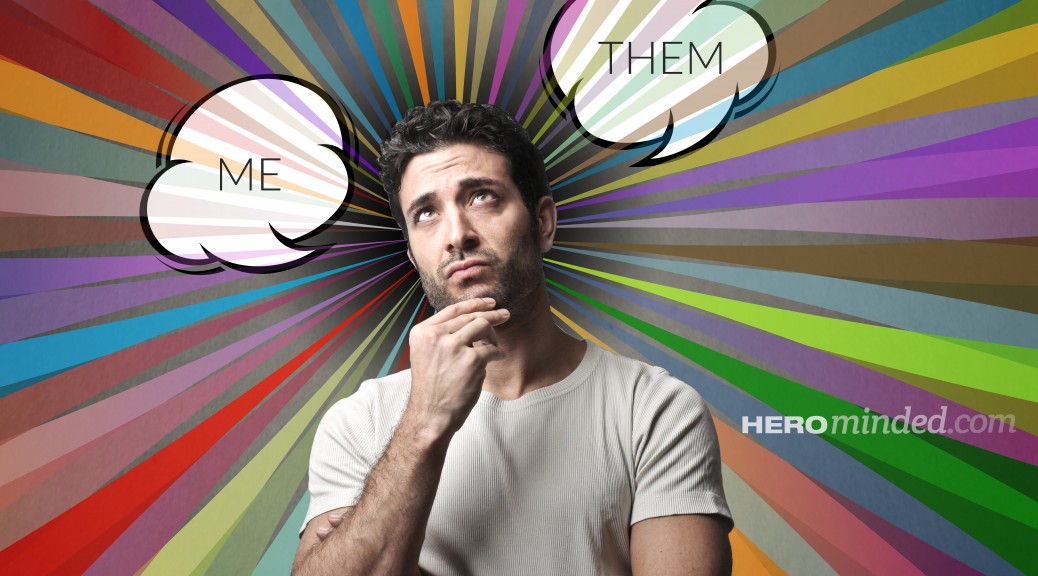How many times are we confronted with a decision or asked to take an action and the first thought that enters our brain is “What’s in it for me?”
That’s our inner villain, trying to survive. The villain doesn’t want to waste time, energy and resources on something that doesn’t have an immediate or personal payoff. It’s not enough that other’s lives will be bettered by our decision or action. The inner villain wants what’s mine and won’t seek to act in the best interest of others unless I have a personal stake reaping the rewards of the outcome.
Think for a moment about the people you see in the culture acting mostly from the inner villain. Celebrities, sports figures, politicians, business people, family, colleagues. How does it make you feel to be in the presence of people who are asking or expecting something from you? People who won’t do anything unless there’s something in it for them?
How and when are you inclined to behave this way?
We’ve begun to turn our inner villain on its head with our social structure. We do socially reward behaviors that are beneficial to larger and larger groups. Doing something that doesn’t appear to have personal benefit is seen as hero minded. And we celebrate heroes, universally.
As an example, when we see someone acting as an activist in a way that will have no personal benefit, we give it more credence than when people are activists in areas that will benefit them if things were to change.
We reciprocate and give to those who are giving — to keep that social lubricant flowing. We admire and talk about people who make personal sacrifices for the betterment of others. We all want to see more of that in the world.
But some of those sacrifices seem hard. We love that others are doing that, but can’t imagine doing it ourselves. We don’t realize that hero mindedness comes in small steps leading to larger ones — just like any endeavor. First we offer our seat to someone, then we get to know them and have compassion for their pain, then we take another step with them, then another. That’s all manageable and doable.
Hero minded people show up. We reward them. Instead of their inner villain reaching into our pockets for our resources to fund their actions, they let us reach into our own pockets to reward the hero.
Our job is to be alert, looking for opportunities to reward the hero minded people around us, and to look for the circumstances to be hero minded in the lives of people we encounter and in the situations we arrive in and create.
Take a moment to think of the ways others have been hero minded around you. How does it make you feel to be in the presence of people who are interested in doing something great for you? How rare is it to find these people?
How can you can be hero minded in the lives of the people you touch every day? Your work, your relationships, your activity choices, your passion projects. How can you be of benefit to others?
The inner hero is trying to make a better world for all. It becomes less and less relevant if the action taken will create a direct benefit for me, in this moment. I choose to trust that, ultimately, by acting to create a better world, I’ll get to live in a better world. By modeling hero mindedness, others will join me.
Billions have come before me, behaving hero minded. That’s why I’m using a device able to share these thoughts with millions, able to transport myself quickly to be in the presence of more people, able to live and travel anywhere I want to go — so much greater than if I was etching my thoughts on the walls of a cave.
What will we imagine next, so that those that come after us will reap the benefit of our actions?





